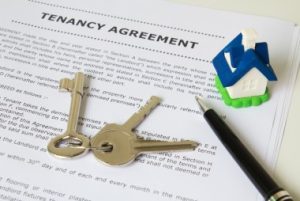Owning a rental property can be a great way to build wealth, but it also comes with tax responsibilities. If you rent out a residential property — whether it’s a house, unit, or apartment — it’s important to understand your obligations to the ATO.
Here’s what you need to know to stay on top of your rental property income, expenses, and tax claims.
Declaring Rental Income
All the income you receive from your rental property must be declared on your tax return. This includes:
- Rent payments from tenants
- Rental bond money kept (e.g. for damage or unpaid rent)
- Insurance payouts related to lost rent
- Reimbursement for expenses paid by the tenant
If you co-own the property with someone else, you’ll each need to declare your share of the income based on your legal ownership percentage.
Claiming Rental Property Expenses
You can claim deductions for certain costs you incur while renting out your property. These can include:
- Interest on your investment loan
- Council rates and water charges
- Property management fees
- Repairs and maintenance (but not improvements)
- Insurance (building, contents, landlord)
- Depreciation on fittings and fixtures
- Travel expenses for inspections (if allowed)
Note: Some expenses are claimable in the same year they’re paid, while others must be claimed over several years (like depreciation or borrowing costs).
Repairs vs. Improvements: Know the Difference
It’s crucial to distinguish between repairs (which are immediately deductible) and improvements (which are capital in nature and must be depreciated over time).
- Repairs restore something to its original condition — like fixing a leaking tap or replacing a broken tile.
- Improvements enhance or upgrade the property — such as installing a new kitchen or building a deck.
Vacant or Unavailable Properties
You can only claim deductions when your property is genuinely available for rent. If it’s sitting empty for personal reasons or not actively being advertised, you may not be eligible to claim expenses.
Selling a Rental Property
When you sell your investment property, you may need to pay Capital Gains Tax (CGT) on any profit. The gain is generally the difference between your sale price and the original purchase price, adjusted for certain costs and depreciation claimed.
If you owned the property for more than 12 months, you may be eligible for a 50% CGT discount.
Recordkeeping: Stay Organised
Good recordkeeping is essential. Keep all receipts, contracts, loan documents, and depreciation reports so you can:
- Substantiate your income and expenses
- Work out capital gains or losses when you sell
- Ensure you claim everything you’re entitled to
Common Mistakes to Avoid
- Claiming deductions for periods when the property wasn’t available for rent
- Claiming the full amount of the loan interest when part of the loan was used for personal purposes
- Confusing repairs with improvements
- Forgetting to declare all rental income
Need Help?
Tax rules for rental properties can be complex, especially if you have multiple properties or shared ownership. A registered tax agent can help you get it right and ensure you’re maximising your deductions while meeting all your obligations.
Source: ato.gov.au





